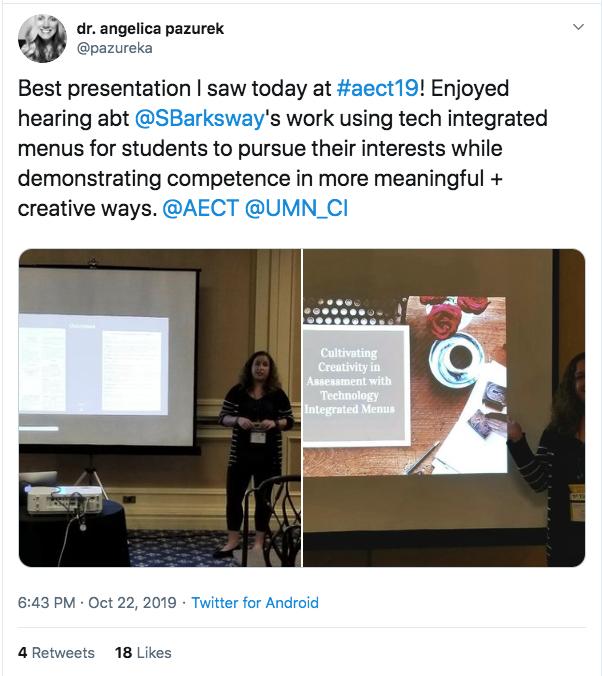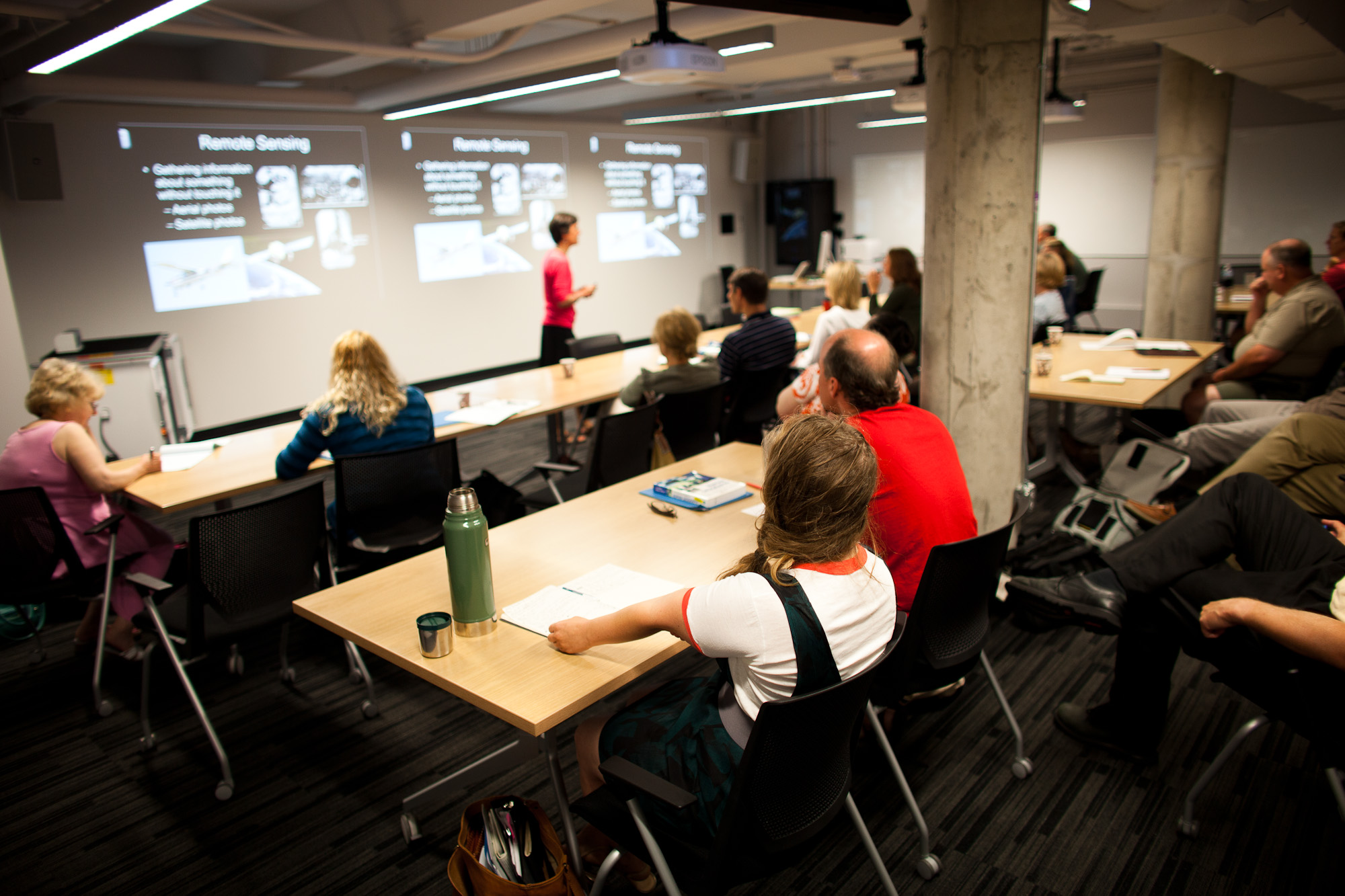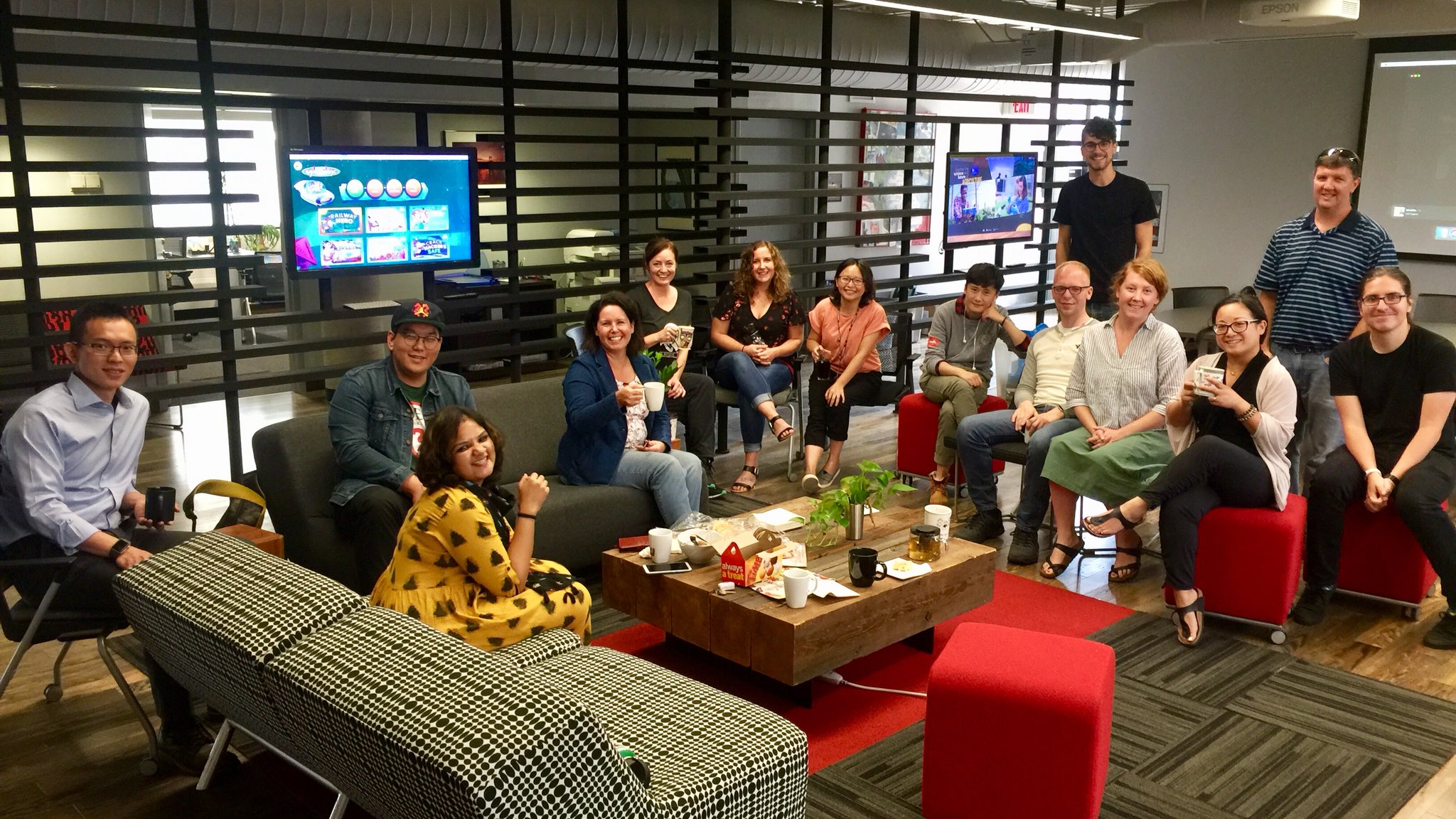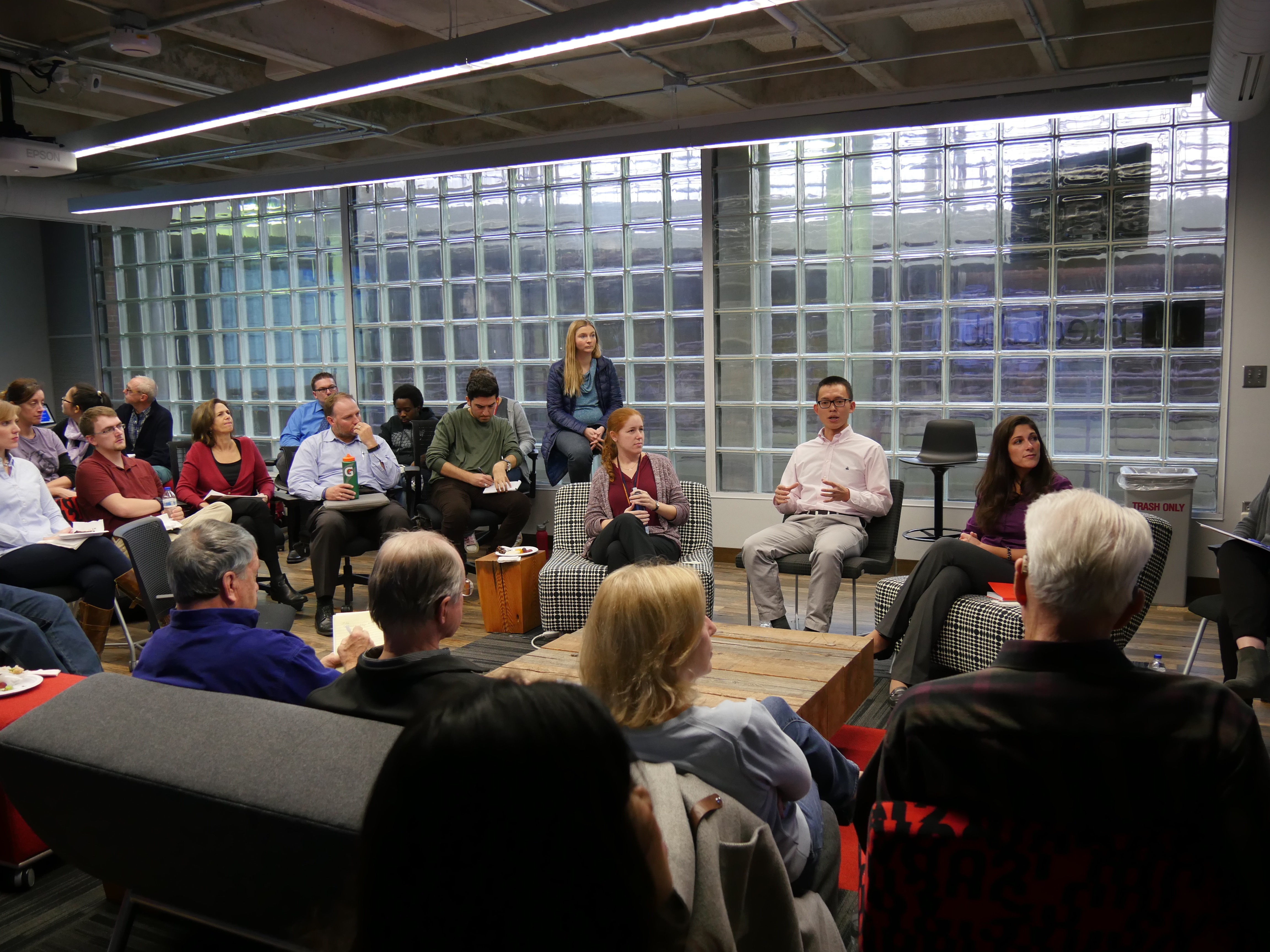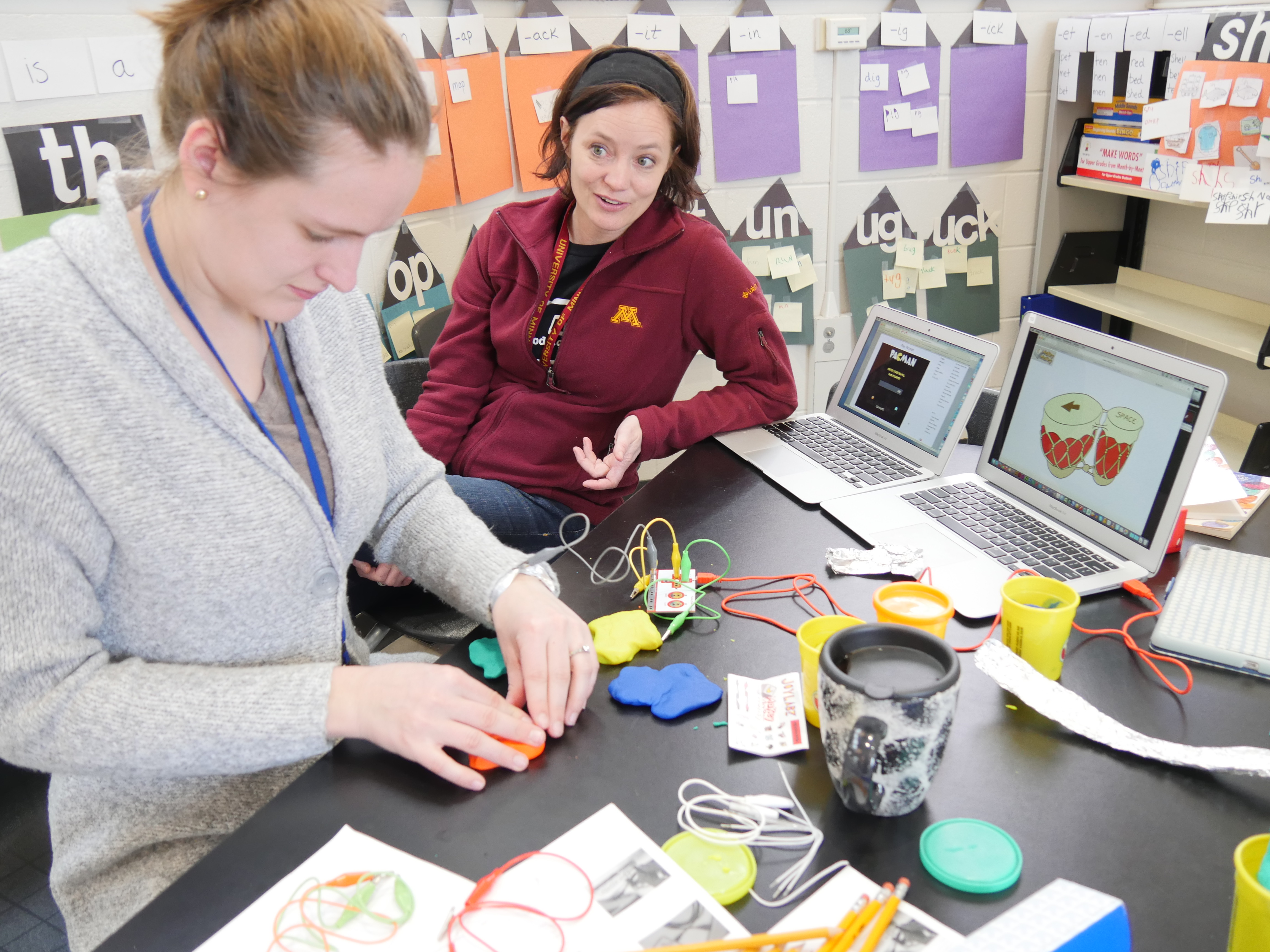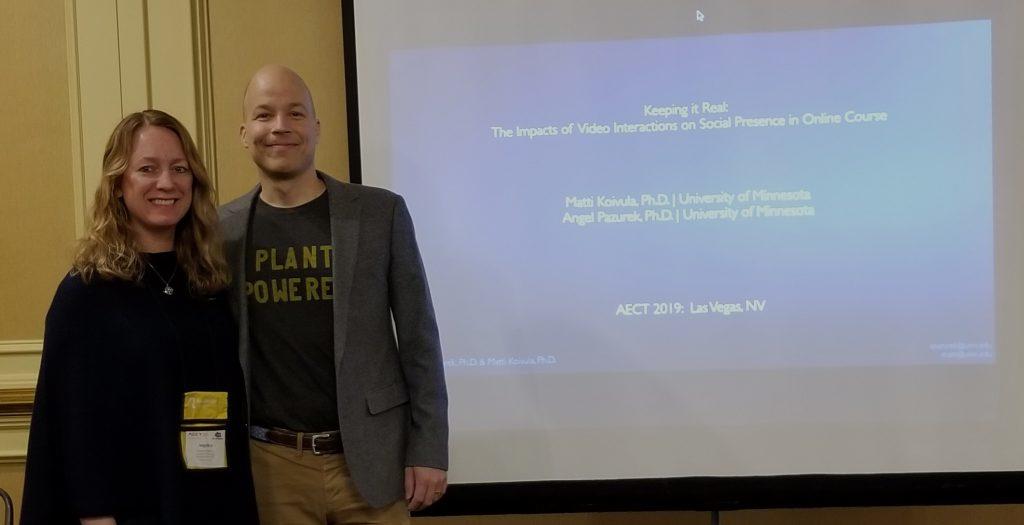
Several Learning Technologies faculty and graduate students recently attended and participated in the Association for Educational Communications and Technology (AECT) international conference held in Las Vegas, Nevada. Their exceptional leadership and scholarship in the field was represented in a wide variety of presentations, recognitions, and active involvement throughout the conference. AECT is a leading international organization for advancing practice and research in learning design.
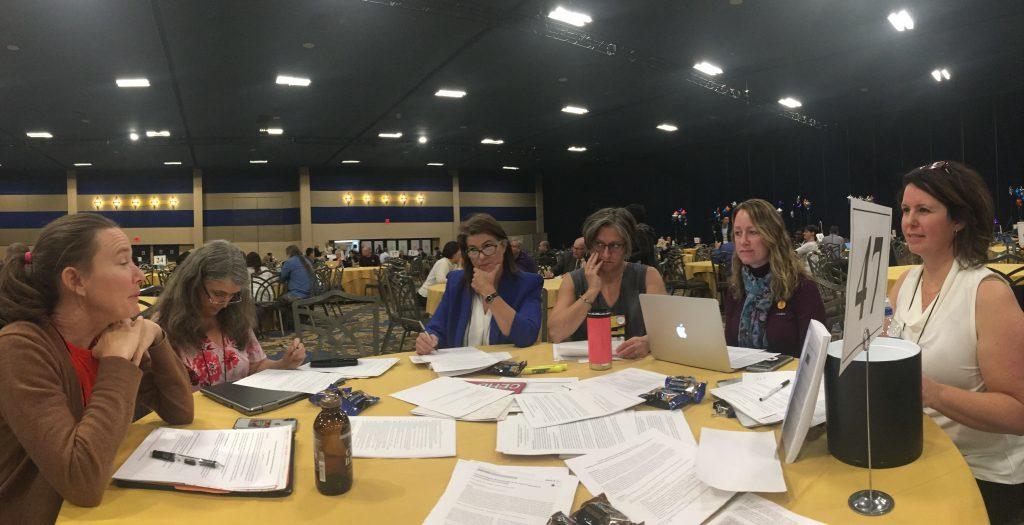
Dr. Jolie Kennedy, Lecturer in Learning Technologies, received the 2019 AECT Qualitative Inquiry Award, which is sponsored by the Research and Theory Division. This prestigious award "honors individual scholarship for exemplary qualitative research recognizing insights into the social and cultural aspects of the educational technology field." Kennedy’s study that was selected for this honor used post-intentional phenomenological methodology to explore lived experiences of connectedness in personal learning networks.
Dr. Angel Pazurek, Senior Lecturer in Learning Technologies, participated in numerous leadership events throughout the conference week in her role on the AECT Board of Directors. She also serves on the Board of Directors for the Learner Engagement Division, which was newly established in December 2018. As a means to help build this new Division, she also organized and facilitated welcome events, membership meetings, and recruitment efforts.
Kennedy and Pazurek, along with Dr. Keri Valentine and contributor Dr. Mark Vagle, led a roundtable discussion and shared inspiring studies of lived experiences with technologies that illustrated the growth of phenomenology from descriptive to interpretive to postmodern. As a promising innovative research methodology, post-intentional phenomenology offers scholars a new lens for glimpsing fleeting phenomena in tech-mediated spaces. Attendees discussed post-intentional phenomenology as both a philosophy and methodology.

Dr. Matti Koivula, Lecturer in Learning Technologies, collaborated with Pazurek in a presentation titled, “Keeping It Real: The Impacts of Video Interactions on Social Presence in Online Courses.” With a full room of curious minds, they highlighted ways to improve social presence in online courses through video-based interactions. They also discussed the findings of a qualitative case study conducted by Koivula, which suggests that social presence can be enabled through the use of video in online settings.
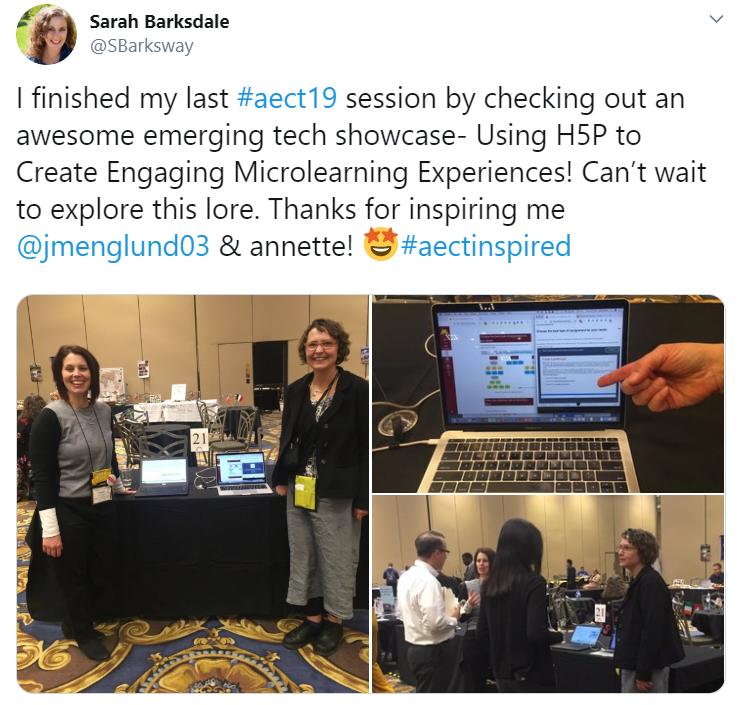
Jennifer Englund, a PhD candidate in Learning Technologies, was part of a team of evaluators who presented the process and results of a crowdsourced method for evaluating a collection of open educational resources for adult basic education. A group of expert and volunteer evaluators reviewed 106 lesson plans created by participants in the Open ABE MOOC. The Open ABE MOOC was offered for four semesters by Designers for Learning, a nonprofit organization that offers service-learning opportunities for instructional designers. The evaluation results found that the quality of the lesson plans was generally good but would benefit from focused attention in specific areas. Additionally, along with her colleague Annette McNamara, Jennifer participated in the Emerging Technology showcase at this year’s AECT conference, demonstrating the creation process of their Creative Commons-licensed Teaching with Technology ebook using H5P and Pressbooks, which is a work in progress.
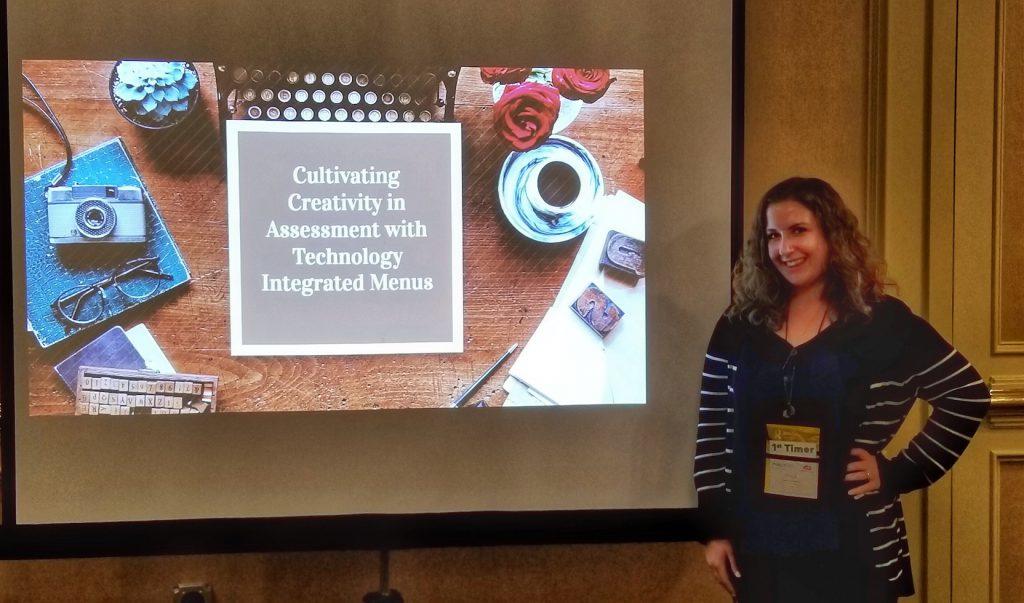
Sarah Barksdale, a third year PhD student in Learning Technologies, shared her experience using menus or choice boards as an assessment tool to promote creativity at the secondary and postsecondary levels in her presentation titled, "Cultivating Creativity in Assessment with Technology Integrated Menus." Sarah hopes to build on this paper to further contribute to the literature on how choice boards can be an alternative assessment method that meets the values of a learner-centered paradigm while simultaneously allowing for learners to integrate their interests and grow their technological skills.
